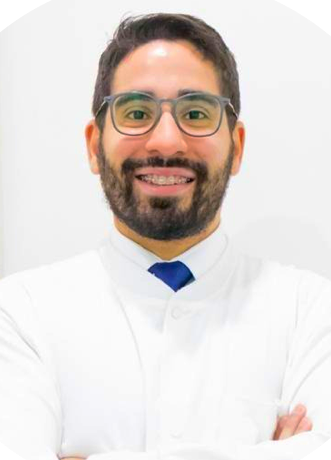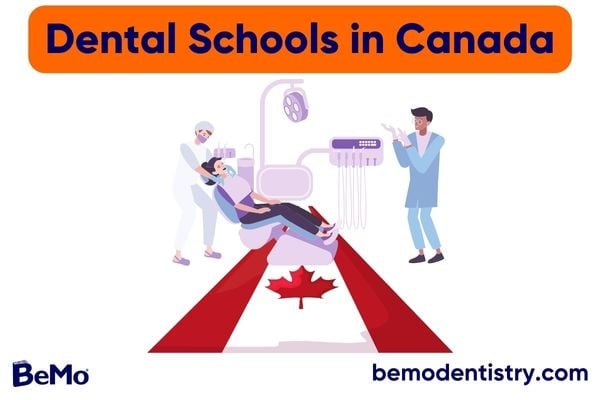Learn how to get accepted to dental schools in Canada with our dental school admissions experts. Check out dental school acceptance rates, accepted GPA and DAT, as well as student experiences applying to dental schools in Canada!
>>Want us to help you get accepted? Schedule a free initial consultation here <<
Listen to the blog!
Dental Schools in Canada: Latest Acceptance Info

How to Get into Dental Schools in Canada: Our Experts Share Insider Tips
Choose the Right Dental Schools to Apply to
One of the most overlooked secrets to getting accepted is to apply to the right dental schools. It's about finding a fit for your academic achievements, values, and career goals.
To maximize your chances of dental school acceptance chances, it's essential to target schools where your qualifications not only meet but exceed the requirements. Start by assessing the average GPA and DAT scores of accepted students at various schools to ensure your academic credentials are competitive.
Additionally, consider how your undergraduate major and experiences align with the school's focus and values. For instance, if a school's mission statement emphasizes scientific research and technological innovation in dentistry, candidates with strong backgrounds in science and tech will likely stand out. Conversely, if your strengths lie in holistic patient care and your experiences reflect a commitment to community service, look for schools that prioritize these aspects. Carefully reviewing each school's mission statement and admissions criteria will help you identify institutions where your unique qualifications and aspirations will be viewed as assets, ultimately increasing your chances of acceptance.
Increase Your GPA
A competitive GPA for dental schools in Canada depends on the schools you are applying to. To be a competitive candidate, you should aim for a GPA of at least 3.5.
You need to know the specific average scores of the most recent class profile and find out if the school has a cutoff score. Some schools will look at only your two best years. For example, University of British Columbia Faculty of Dentistry requires applicants to have a UBC equivalent of at least a B+ in third- and fourth-year senior level courses.
Boosting your GPA to enhance your dental school application requires strategic planning and dedicated effort. Here’s how you can improve your academic standing:
- Seek Extra Help: Utilize professors, tutors, and study groups for subjects you find challenging.
- Prioritize Your Course Load: Choose classes that are known to be GPA boosters but also relevant to dentistry.
- Consider Retaking Courses: Retake courses where you received lower grades, as improved scores can significantly impact your GPA.
Have Strong DAT Scores
Every dental school in Canada, except for McGill, requires applicants to complete the Dental Aptitude Test (DAT). Some schools mention specific cutoff scores; these cutoff scores represent the minimum accepted standards, but higher scores will be required to be competitive.
Achieving a high score on the DAT requires focused preparation and strategic study methods. Here are some proven strategies to help you succeed:
- Understand the exam structure and content.
- Familiarize yourself with the types of questions and the format of each section.
- Plan your DAT study schedule several months in advance, allocating 2-3 hours of study per day over 3-4 months.
- Take full-length, timed practice tests under simulated exam conditions to build stamina and get accustomed to the test format.
- Review your practice test results to identify weak areas.
- Spend additional study time on these topics, using targeted practice questions and review materials.
- Master Perceptual Ability Test (PAT) techniques, such as keyholes, top-front-end, angle ranking, hole punching, cube counting, and pattern folding.
- Practice reading scientific passages and summarizing key points.
- Focus on improving your math skills, particularly in algebra, geometry, and trigonometry.
Prepare for CASPer
Five dental schools in Canada require applicants to take the Canadian Professional Health Sciences test (CSP-10201) via CASPer. These schools are:
- McGill University
- University of Alberta
- University of Montreal
- University of Toronto
- Western University
The best way to prepare for the CASPer is to practice answering CASPer questions in a realistic setting. You can also take advantage of resources like a CASPer test prep course or a CASPer test prep book.
When you’re practicing, focus on producing a high-quality answer; once you establish what a quality answer sounds/looks like, you can focus on answering within the time constraint. If you’re struggling to prepare, consider CASPer prep services.
Expert help can elevate your CASPer exam prep and results to new heights, just like BeMo student Dewmini D.
“The Casper Review sessions are amazingly helpful! Dr. Haitham Shoman went above and beyond for me by scheduling other sessions when we ran out of time to ensure we answered all of my questions, providing me with great feedback on my answers and his tips on how to improve my scores were immediately effective. He is very friendly, comes with a big smile and has been an integral part of my improving casper scores.” – Dewmini D., former BeMo student
Write Dental School Personal Statements That Stand Out
Some dental schools in Canada invite you to share more about yourself via a dental school personal statement, sometimes referred to as personal experiences or an autobiographical sketch. Specifically, Dalhousie University, University of Alberta, and Western University include this as an application requirement.
Use this opportunity to showcase your passion for dentistry, personal experiences, and career aspirations. It will provide a unique and personal context to your application that a transcript’s list of grades and courses cannot convey
Three expert tips for creating a memorable statement include:
- Make sure you stick to the word count
- Always answer any prompts or specific questions
- Provide up to three examples that showcase the characteristics and experiences that make you a good fit for the school and dental profession.
Additionally, tailor your statement to the values and mission of each school you're applying to, highlighting specific aspects of their program that align with your interests and goals. Remember to pay attention to grammar, spelling, and overall structure to ensure your statement is polished and professional.
Finally, seek feedback from mentors, professors, or expert advisors to refine your statement further. One BeMo student was able to put together a statement she was proud of with guidance from one of our admissions experts.
“Dr Ruth Martinez answered all of my questions and guided me in writing the personal statement. She helped give me good directions and key words for writing my personal statement so that it is impactful for my dental application.”- Mariko, BeMo Student
Want more tips?
Prepare for Your Dental School Interviews
Preparing for dental school interviews is one of the final hurdles to getting accepted. Start by familiarizing yourself with the school’s interview format, mission, values, and unique features.
Practice answering common interview questions, such as why you want to pursue dentistry and what experiences have prepared you for dental school. Be ready to share examples from your background that demonstrate your skills, qualities, and commitment to the profession. Utilize mock interviews with peers or mentors to refine your responses and improve your communication skills.
Finally, remember to dress professionally, maintain good posture and eye contact, and express genuine enthusiasm and passion for dentistry during the interview.
To maximize your interview success, consider working with an admissions consultant to practice your skills and improve your answers, just like Mohammad did before his dental school interviews.
“Overall, I found the session to be incredibly helpful as I became more aware of my strengths and weaknesses and gained insight on the general types of questions that dental schools ask during panel interviews. Joseph was very friendly, knowledgeable and shared many great resources with me to better prepare for dental school interviews.” – Mohammed Jafari, Former BeMo Student
Start the Dental School Application Process Early
Starting your dental school application early gives you time to learn about programs and their requirements.
18-24 Months Before Application:
- Research Schools: Identify schools that fit your interests and qualifications.
- Prerequisites: Ensure completion of required courses.
- Extracurriculars: Engage in shadowing, volunteering, and relevant activities.
12-18 Months Before Application:
- Test Preparation: Begin studying for the DAT and CASPer (if required).
- Letters of Recommendation: Cultivate relationships for strong recommendation letters.
6-12 Months Before Application:
- Take the DAT and/or CASPer: Allow time for a retake if needed.
- Personal Statement: Draft your statement reflecting your passion and experiences, if required.
- Transcripts: Request transcripts from all post-secondary institutions.
3-6 Months Before Application:
- Gather Materials: Compile your personal statement, recommendation letters, and transcripts.
You don’t have to do it alone! Working with a dental school consultant can make the process more manageable, saving you time and effort.
“I recently had a great dental school planning session with Dr. Amanda Thompson. She answered all my questions about going into the process of applying to dental schools and gave me some great advice on my steps going forward. Would highly recommend it!” – Tanvi, former BeMo student
FAQs
1. How competitive are dental schools in Canada?
Like US schools, most dental schools in Canada are quite competitive. For international applicants, admission can be even more difficult. Review acceptance rates and information on which schools will accept different applicant categories to determine your chances of getting accepted.
2. Can I apply to French-speaking schools?
You will be required, at the very least, to show proficiency in the French language, as you will be I regular contact with francophone patients in various clinical settings. Preference is generally given to in-province applicants.
3. What GPA should I have to be a competitive applicant?
Some schools will have cutoff scores, but the best way to find out if your GPA is competitive is to find the mean applicant GPA. Generally, you will need to have at least a 3.5 to be competitive.
4. Will I have to take the CASPer test?
Some schools make CASPer a requirement. For example, the University of Alberta, University of Montreal, University of Toronto, McGill University, and Western University Schulich School of Medicine & Dentistry require applicants to submit CASPer scores.
5. What are some tips for doing well on the DAT?
To perform well on the DAT, you will need to do practice exams. The exam will take approximately five hours, and you will only have one 15-minute break. If it suits you, revise with a study partner; make sure you allot enough time for revision, ideally five times a week, three hours a day for three or four months.
6. How long does it take to become a dentist in Canada?
In general, it takes eight years to become a dentist in Canada, between obtaining a bachelor’s degree and completing dental school.
7. What is the average salary of a dentist in Canada?
According to the latest stats, the average salary for a dentist in Canada is $117,362 per year.
Please note: although we have made every effort to provide the most accurate information, admissions information changes frequently. Therefore, we encourage you to verify these details with the official university admissions office. You are responsible for your own results. BeMo does not endorse nor affiliate with any official universities, colleges, or test administrators and vice versa.
To your success,
Your friends at BeMo

